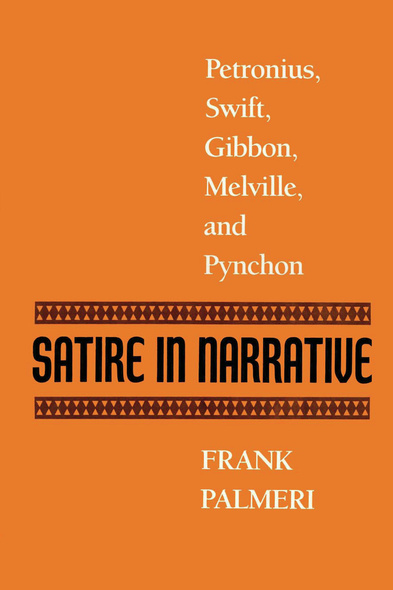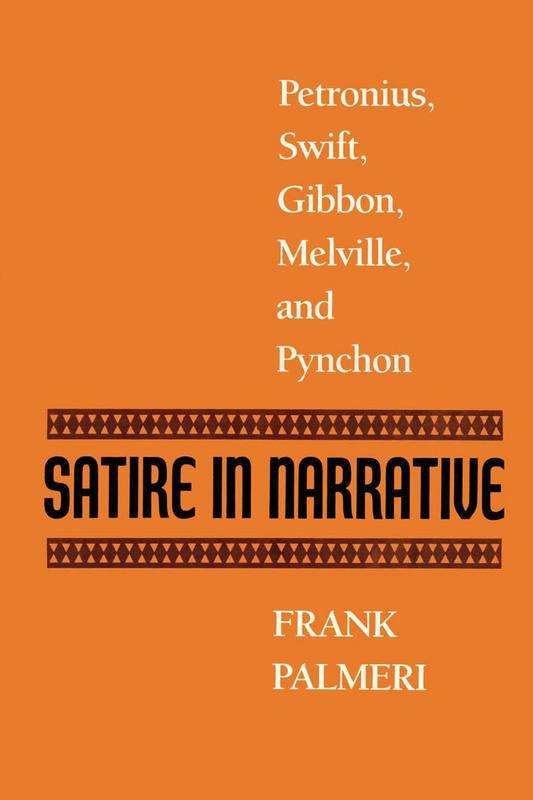Satire in Narrative
Petronius, Swift, Gibbon, Melville, & Pynchon
Virtually all theories of satire define it as a criticism of contemporary society. Some argue that satire criticizes the present in favor of a standard of values that has been superseded, and thus that satire is generally backward-looking and conservative. While this is often true of poetic satire, in this study Frank Palmeri asserts that narrative satire performs a different function, that it parodies both the established view of the world and that of its opponents, offering its own distinctive critical perspective.
This theory of satire builds on the idea of dialogical parody in the work of Russian theorist Mikhail Bakhtin, while revising Bakhtin's estimate of carnival. In Palmeri's view, the carnivalesque offers only an inverted mirror image of authoritative discourse, while parodic narrative satire suggests an alternative to both the official world and its inverted opposite.
Palmeri applies this theory of narrative satire to five works of world literature, each of which has generated sharp controversy about the genre to which it rightly belongs: Petronius' Satyricon, Jonathan Swift's A Tale of a Tub, Edward Gibbon's Decline and Fall of the Roman Empire, Herman Melville's The Confidence-Man, and Thomas Pynchon's The Crying of Lot 49. He analyzes the features that link these works and shows how the changing pairs of alternatives that are parodied in these satires reflect changes in the terms of social and cultural oppositions.
Satire in Narrative will appeal to comparatists, specialists in eighteenth-century and American literature, and others interested in theories of genre and the relations between literary forms and social history.
This important study expands the borders of parody and traditional satire. It urges that satirists need not be moralistic and conservative, merely mocking and skeptical. Where some claim that satire is dangerous, apt accidentally to impugn almost everything, Palmeri argues that satire does so deliberately. That is debatable; appropriately, this ambitious work will instigate such debate.
- Acknowledgments
- Introduction
- 1. Satiric Parody of Classicism in the Satyricon
- 2. Satiric Materialism in A Tale of a Tub
- 3. Satire, Epic, and History in The Decline and Fall of the Roman Empire
- 4. The Dialogue of Credit and Doubt in The Confidence-Man: His Masquerade
- 5. Parody and Paradigms in The Crying of Lot 49
- Epilogue: Borges, Satire, and History
- Notes
- Bibliography
- Index





